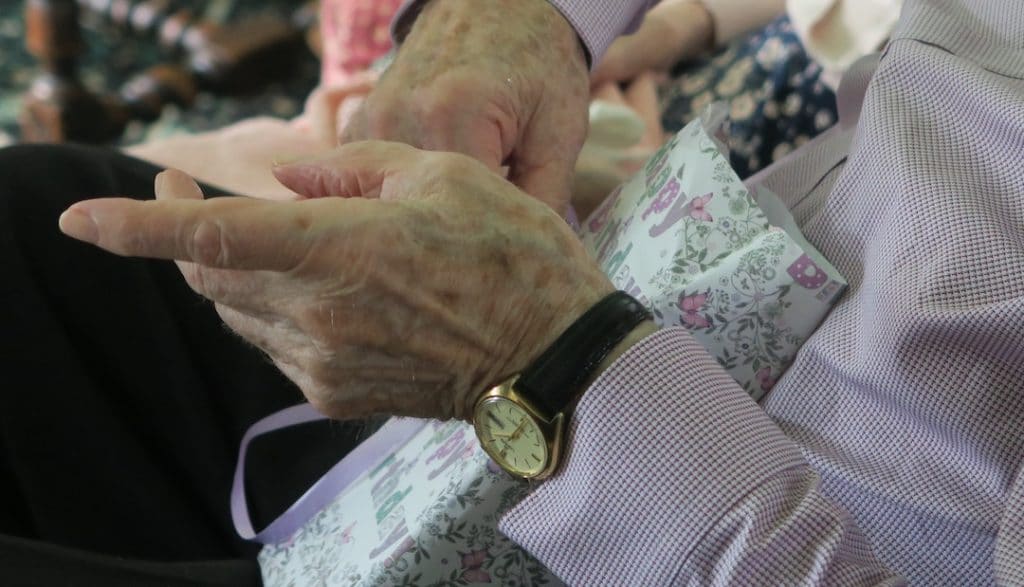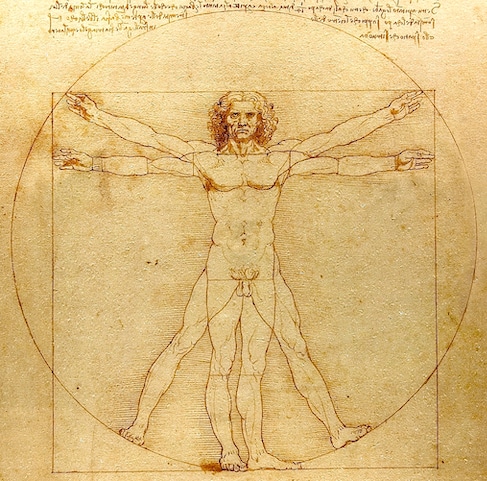
Did your mother ever tell you, “To give is to receive?” She was partly right. What she forgot to add was, “To give with an open heart, you must be able to receive.”
Giving and receiving belong together, like inhaling and exhaling. But giving typically gets more of our attention.
You might think that’s only fair, given that our culture seems so full of “takers” interested only in amassing more for themselves. Note: receivers are not takers.
Receiving expands connection. Taking can deplete it.
Picture this. You give a compliment to someone, who doesn’t fully receive it. “What a beautiful dress,” you say. She replies, “This? It’s so old.” Or, you thank someone for his volunteer work at an event, and he says, “Oh, I didn’t really do anything.” In each case, someone thinks they’re humble when, in fact, they’ve taken your words without receiving the gift in them.
Giving to someone who can’t receive can leave us feeling empty.
In contrast, we can receive a gift, support, compliment, or love, by pausing and feeling the spirit behind what we’ve been offered. In receiving deeply and gratefully, we feel held and whole. Perhaps the places inside of us that have known lack can begin to heal and we will trust, if but for a moment, that the universe has our backs.
Why receiving can be hard
You’d think receiving would be a joy, but here’s a dirty secret: much of life gets built around lack.
In the United States, many of us (especially if white) were born to advantages that much of the world would love to enjoy. So why aren’t we overflowing with a spirit of abundance, gratitude, and desire to share?
I think it’s because many of us were wounded in our early lives when we didn’t get what we needed or wanted.
Maybe it was that pony under the tree at Christmas, or an acknowledgment of something we did. Perhaps we needed a hug when we felt shaky, someone to comfort our tears, or a bigger serving of unconditional love. We may have craved assurance that we mattered, an affirmation of our worthiness no matter what.
In such moments of great disappointment, our little hearts were bruised or broken, and we were left wondering, “Why didn’t they see me? Or care? Why wasn’t I sufficiently loveable to be worthy of their recognition, acknowledgment, or support?”

We coped with our losses, but didn’t forget. A sense of lack was driven into our bones.
Often it became part of who we were, our identity.
Even if this sense of lack caused us pain, it became part of our known world. In some ways, it provided an anchor (“That’s the way things are,”) we could depend upon and protection from being disappointed again. (“I’ll never be so stupid to expect a pony,” or “I didn’t really want it, anyway.“)
We created an invisible story that deflects data that could contradict it. We hold on to lack. We prep ourselves to be disappointed, decide that we can only count on ourselves, or perhaps, in a counter-narrative, we become super-givers, using our giving as another way to shield ourselves from what we can’t bear to feel.
Lacking and wanting can be huge motivators. Entrepreneurs have built companies and amassed fortunes while striving for what they didn’t have, such as respect, money, privilege, or recognition.
The trouble is that success and achievement built on a foundation of lack rarely lead to peace or satisfaction.
How to increase our receiving
Takers pull energy from others. Receivers share out of the gratitude that they feel. Someone who can receive and feel gratitude automatically wants to share.
Reading the top news today, I’d say that the mood is hardly generous. We see examples of affluent people who hold tightly to what they have and grasp for more, ignoring the opportunities to give more to others. In the United States, there’s talk of restricting access to the food stamps offered the neediest. When we curtail generosity, we don’t build wealth; we amplify our sense of lack.
I’m in remedial receiving myself. Receiving is an archetypically “feminine” power in a world that favors action and forward thrust. I have to reclaim that natural part of myself.
But with some work, I think we can recover. Here’s what I’m trying; I’d love to know if any of these work for you:
 Attend to the good. Focus on a time when you felt (or are feeling) overfilled with the goodness of life. Maybe it was while you were meditating, hearing great music, seeing your child’s smile, falling in love–any significant moment of wonder that warmed your life will work. Allow the memory of plenitude and abundance to swell in you. (You might bookmark this feeling to return to when you sense lack creeping towards you.)
Attend to the good. Focus on a time when you felt (or are feeling) overfilled with the goodness of life. Maybe it was while you were meditating, hearing great music, seeing your child’s smile, falling in love–any significant moment of wonder that warmed your life will work. Allow the memory of plenitude and abundance to swell in you. (You might bookmark this feeling to return to when you sense lack creeping towards you.)- Raise your arms to receive. Put your arms out and stand, like Leonardo’s man, as if you’re saying “Yes!” to the wholeness of life. Feel the earth with your feet and the stars with your arms. Breath it all in.
- Practice more deeply accepting a gift, compliment, or idea by pausing, taking a big breath and seeing if you can draw the essence of the gift into you.
- Amplify gratitude. Look at all the places where you’ve received so much. Linger on those thoughts.
Don’t try to think your way into receiving. It’s an experience that you must feel with your body as well as your mind. And don’t judge yourself if disappointments linger. Maybe our very human sense of lack never completely goes away. So be it. Be kind to yourself. Hurting and lacking can co-exist with a deeper place in our souls that knows abundance and gratitude.
Fueling our connection
We can’t heal our feelings of lack at the level of life where we feel that lack. (Thank you, Einstein.) Instead, we can discover, either through meditation, prayer, or wonder, places within us where “enoughness” and abundance reign. That’s where we can tank up and fill the holes that past lack etched in our guts.
The needy child within us may be crying but we aren’t going to appease her with more stuff. Stuff might buy her some momentary pleasure, but pretty soon she’ll be whining again. Better to rock her gently, cooing “You are safe, wanted, loved, and whole,” until she can begin to relax.

When we appreciate how full and blessed we are, our cup runneth over into our giving.
Giving is a way to feel our hearts’ abundance. By dropping into our joy in giving, we open the door wider to gratitude and receiving. We don’t need anything back as part of the deal (although thank-yous are always nice).
We give because that allows us to feel how much we’ve received. We receive because that allows us to give more.
Giving with a full heart turns the holidays from transactional (“I have to get something for…”) into sacred.
I hope you enjoy your giving. “Stay away from malls” is my mantra, but do whatever is pleasurable to you.
And receive a lot. Wonder is everywhere and so is love, when we open our hearts.


 Attend to the good. Focus on a time when you felt (or are feeling) overfilled with the goodness of life. Maybe it was while you were meditating, hearing great music, seeing your child’s smile, falling in love–any significant moment of wonder that warmed your life will work. Allow the memory of plenitude and abundance to swell in you. (You might bookmark this feeling to return to when you sense lack creeping towards you.)
Attend to the good. Focus on a time when you felt (or are feeling) overfilled with the goodness of life. Maybe it was while you were meditating, hearing great music, seeing your child’s smile, falling in love–any significant moment of wonder that warmed your life will work. Allow the memory of plenitude and abundance to swell in you. (You might bookmark this feeling to return to when you sense lack creeping towards you.)








